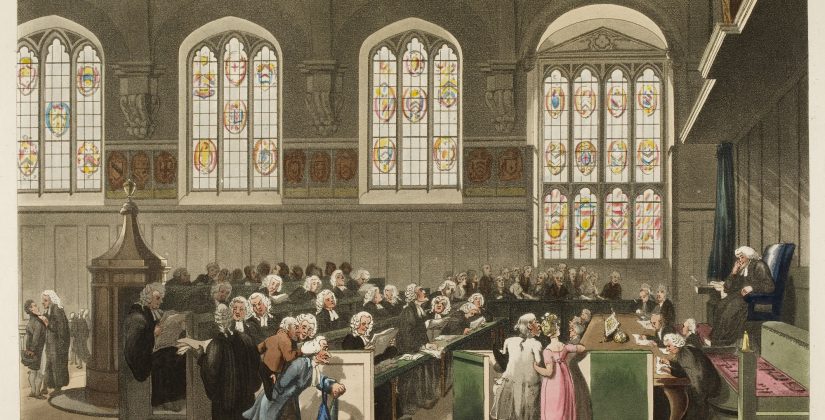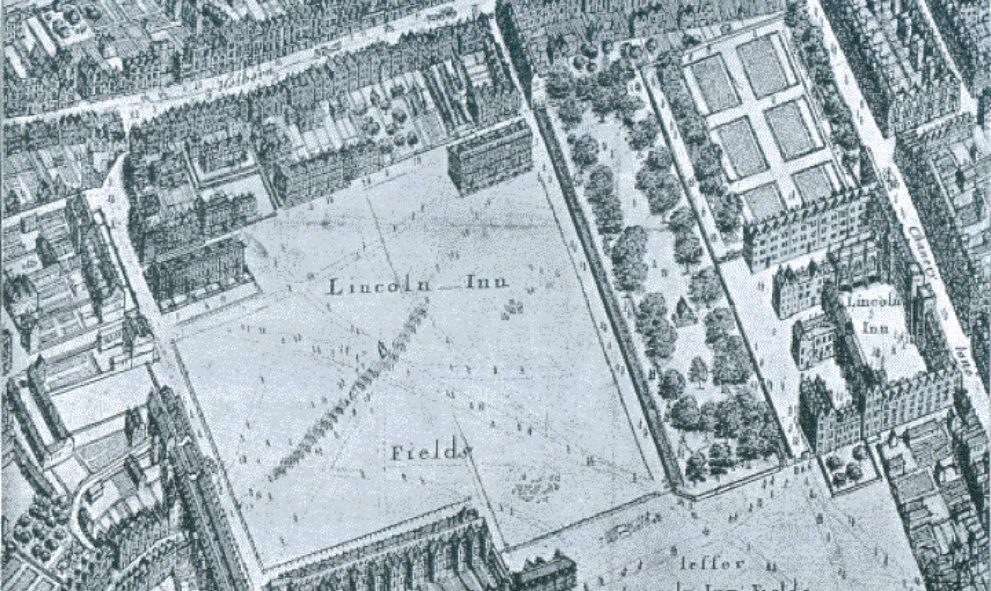The law and the morphing of past into present
Law reporter Matthew Brotherton takes a trip down Jackanapes Lane, subject of an Act of Parliament promoted by his ancestor, Thomas Brotherton MP, exactly 320 years ago today, and comments on how in law the past is always with us … Continue reading about The law and the morphing of past into present

“What’s past is prologue”
Shakespeare, The Tempest II, 1
“Without communication with the dead a fully human life is not possible”
WH Auden
“Everything has to change so that everything may stay the same”
Sicilian proverb (and no doubt Boris Johnson’s bedside reading), taken from The Leopard, by Lampedusa: “Tutto deve cambiare affinché tutto resti uguale”.
The life of a Law Reporter embraces moments of intense concentration but also scintillae of roaming free-thinking.
And history is never far from the present day in the law.
A few years ago a very scholarly lawyer friend sought to “abolish” all law, that is to say case law and statutes, before 1800 – or at least to “consolidate” it: the reason being, he told me, that it was essentially “a waste of time”. He was submerged in drafting arguments to this effect in Lincoln’s Inn Library when he put this idea to me. He spent time firing off missives to senior lawyers and politicians to seek to advance his proposal.
The very next day in the court I was covering as a Law Reporter in the Court of Appeal a case came on about a major fire at business premises: Gore v Stannard (trading as Wyvern Tyres) [2012] EWCA Civ 1248; [2014] QB 1. As the hearing proceeded, the court blithely referred – as if to breakfast, or the weather – to a case from the dawn of the fifteenth century about liability. As a commentary on the fifteenth century case states:
“The custom of the common law of England laid the loss at the door of the person on whose property the fire had started. In Beaulieu v Finglam (1401) YB 2 Hen 4 , fo 18, pl 6 the custom was pleaded thus: ‘quilibet de eodem regno ignem suum salvo et secure custodiat et custodire teneatur ne per ignem suum dampnum aliquod vicinis suis ullo modo eveniat’”.
Latin was evidently not disdained as it is now, following Lord Woolf’s so-called “Lupine reform”. (One imagines incidentally that Roman lawyers may have been told to avoid using Greek at various times? You can imagine the judges sighing: “Please, Mr Cicero: do desist from using that antiquated fossil of a language, known only by the elite, and focus on using a language everybody can understand”) .
In the same Court of Appeal hearing in Gore v Stannard, and just moments after the reference to Beaulieu, attention was closely focused on the Fires Prevention (Metropolis) Act 1774.
So much for the irrelevance of “The Past”. I never again heard the suggestion that we abolish all that old law.

Closer to present times, while concentrating on writing my WLR Daily case summary of the judgment in Warsama v Foreign and Commonwealth Office [2020] EWCA Civ 142; [2020] WLR(D) 83 as just handed down by the Lord Chief Justice, Lord Burnett, in the Court of Appeal, and being a case concerning article IX of the Bill of Rights 1688 (“proceedings in Parliament” and parliamentary privilege), I fell to wondering whether my ancestor Thomas Brotherton MP (1656-1702) was a Member of Parliament when that Act was enacted.
He was not: 1695 onwards.
Anyway, while checking up on that earth-shaking matter, I was reminded that the man was responsible (as his online entry in the History of Parliament records: BROTHERTON, Thomas (c.1656-1702), of Chancery Lane, Mdx. and the Hey, Newton, Lancs) for promoting a Bill “Making good the deficiency of the charges of making a way out of Chancery Lane to Lincoln’s Inn Fields”. Then, on looking into it further, I discovered (from Lincoln’s Inn’s Black Books, and with the aid of the ever helpful Librarians at the Inn) that there were in fact two Acts: a preliminary one from 1698 (2 Will III, c 11); and the principal one of 1700 (2 & 13 Will III, c. 26) which received its second reading on 13 February 1700, which meant that the 320th anniversary of that event was, well, today, 13th February 2020, as my colleague Georgina Orde spotted.
A small commemoration of this quirk of echoic memory seemed appropriate.
The “mischief” at which the legislation was targeted was the dangerous and run down state of a much used passage between Chancery Lane and Lincoln’s Inn Fields, full of “cutpurses” and too narrow for horses and carts, let alone well padded barristers perhaps. The place was rather appropriately known as “Jackanapes Lane”, which would now I think pass near Bell Yard and along parts of Carey Street, quite near the Seven Stars Public House. I imagine a sort of primitive compulsory purchase order was effected to clear buildings and enlarge the lane. Thomas Brotherton may have been inspired to promote the change because he was a barrister as well as an MP, and in fact he lived in Chancery Lane.
One hopes that Thomas Brotherton would be pleased that the Brothertons are still active in the locality and in the law.
Matthew Brotherton
Barrister and Law Reporter
13 February 2020
Featured image: The Court of Chancery in the early 19th century, sitting in Lincoln’s Inn Old Hall, via British Library.